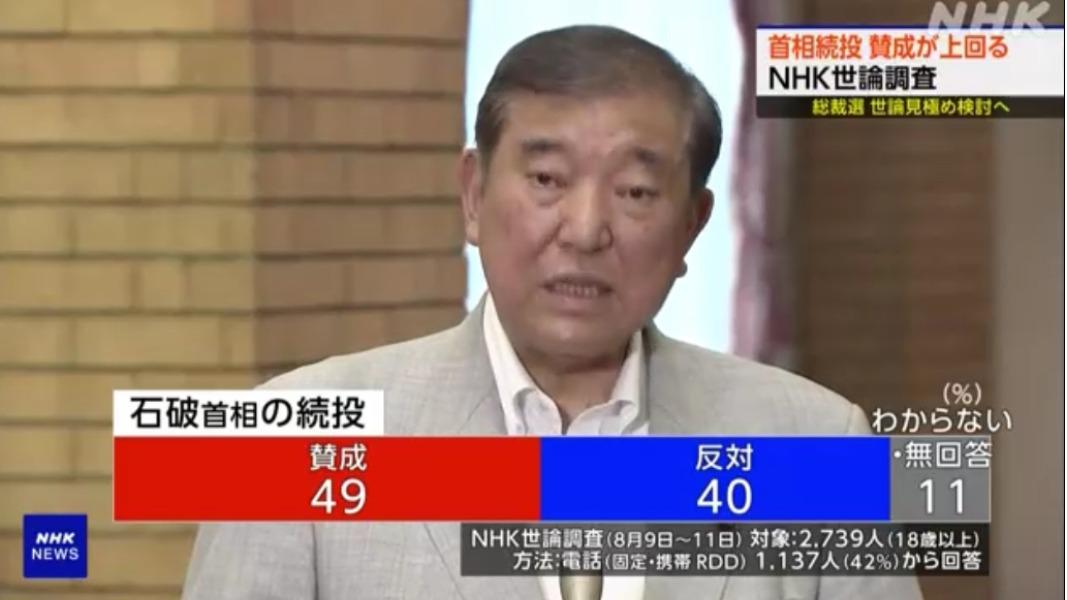
NHK reported on August 13 that public support for Prime Minister Shigeru Ishiba to continue in office was higher than opposition. However, an analysis adjusting for respondents’ ages suggests the opposite: more people actually oppose his continuation.
This discrepancy arises from an apparent age bias among the survey respondents, skewing older. When adjusted to reflect the actual age distribution of voters, past NHK surveys on Cabinet and party support showed similar inconsistencies.
NHK acknowledged that their phone surveys tend to over-represent older respondents and under-represent younger ones. While NHK commits to researching better survey methods, they did not directly address why the age-adjusted results differ from what was reported.
Many media outlets fail to disclose the age breakdown of their survey respondents, preventing such adjustments. Consequently, public opinion as reported could significantly diverge from reality due to this bias.
NHK’s survey, conducted on August 9-11, involved 1,137 people, with respondents favoring Ishiba’s continuation reported at 49% and opposition at 40%. Yet, further analysis indicated younger respondents (under 60) generally opposed, while those over 60 supported him.
The trend of age bias in survey responses persists across months, raising questions about the accuracy of public opinion polls and their influence on politics. NHK admitted to not adjusting their reported results, citing concerns that such adjustments might skew individual responses further.
The lack of adjustment is concerning, as these surveys influence voter perceptions and political decisions. Efforts to increase young respondents are crucial, as younger demographics tend to be underrepresented.
NHK is commended for transparency, though other media must also provide detailed data to maintain the reliability of surveys. This transparency should include how results change with age adjustments, ensuring any significant discrepancies are transparently reported.
by MagazineKey4532
